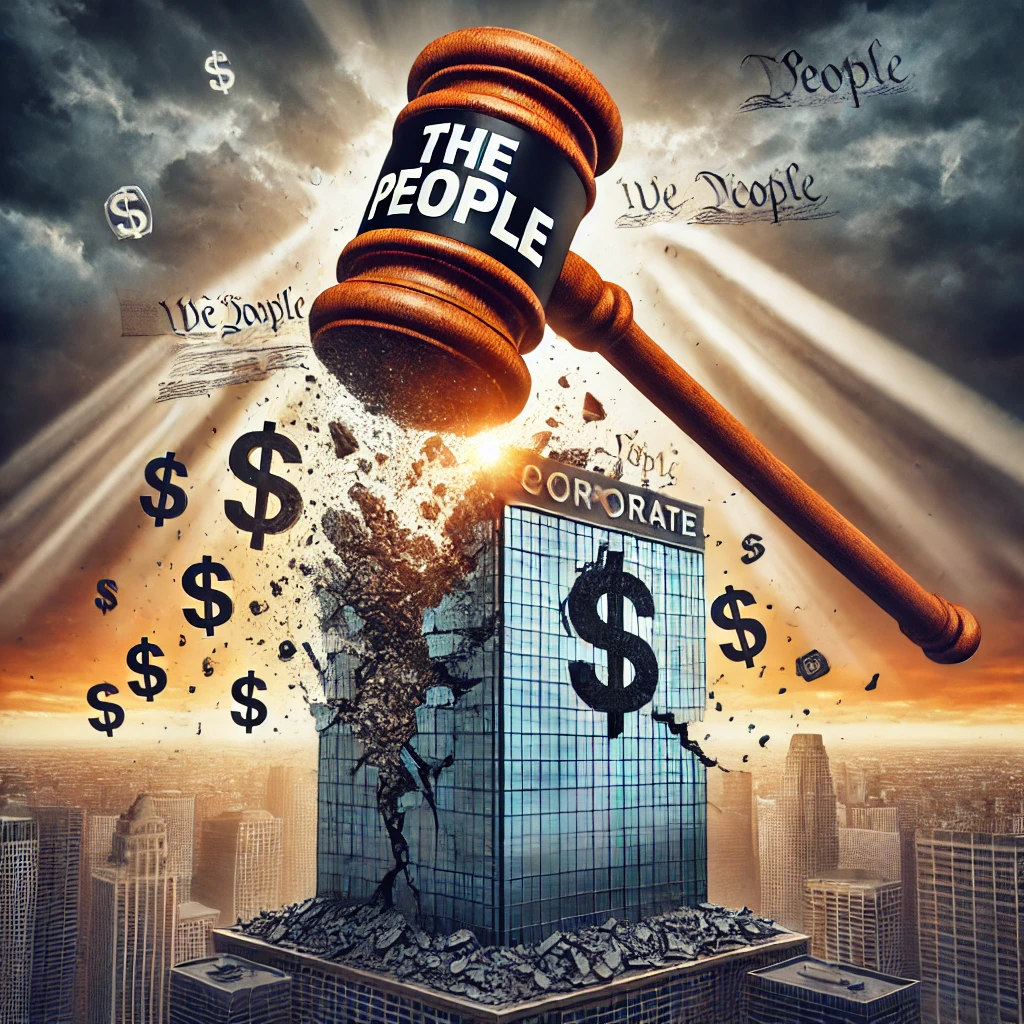Your cart is currently empty!

The 2024 Election
Classical Liberalism Defeats Corporatism
Today is November 8th, 2024.
I have spent the last three days reflecting on this momentous election and the small role I played in challenging the broken narratives entrenched in our cultural zeitgeist. For many, Donald Trump’s victory in the 2024 presidential election, alongside a conservative sweep of all branches of government, is both confusing and frightening.
Through selective framing, the media has obscured the fact that this election reflects a broader cultural and political pushback against the centralization of power and the erosion of individual liberty. Over the past decades, neoliberal corporatist policies have expanded the bureaucratic state, beginning in the late 1970s. This consolidation has fueled the dishonest demonization of classical liberalism, reframing it as fascist authoritarianism, while presenting neoliberalism as a superficially compassionate alternative, a topic I explore in “The Demonization of Classical Liberalism”. At the same time, public disillusionment with corporatism and regulatory capture, as I discuss in “Corporatism is Not Capitalism” and “The Neoliberal Playbook”, reflects a deep yearning for governance that prioritizes individual sovereignty over elite interests.
This election wasn’t just about a return to policies that favor local autonomy. It was a symbolic reclamation of decentralized authority, the necessity of which I elaborate on in “The Risks of Centralized Authority” and “Federalism”. The corporate establishment’s attempts to polarize and manipulate public opinion through groupthink, as detailed in “Polarized” and “Reactionary”, were met with a resounding rejection. Instead, voters chose leaders who represent a challenge to regulatory capture and media manipulation, explored further in “Regulatory Capture” and “Corporate Media and Our Election”.
Below, you’ll find a curated directory of articles intended to help you understand this turning point, and how it represents a renewed hope for a future built on classical liberal values and individual empowerment:
Government and Political Structure
- Federalism: Explores the strengths and limitations of federalism as a governance model and its role in balancing power between state and federal governments.
- The Electoral College: Discusses the historical reasoning behind the Electoral College and its modern relevance in preserving the balance between populous and less-populous states.
- The Risks of Centralized Authority: Highlights the dangers of over-centralized power and its potential to lead to authoritarian outcomes.
Economic Systems and Critiques
- Corporatism is Not Capitalism: Differentiates between corporatism and true capitalism, showing how corporatist policies distort markets and concentrate wealth.
- The Neoliberal Playbook: Breaks down the tactics and policies associated with neoliberalism and its impact on global governance and wealth inequality.
- Why the Global Economy is Broken: Examines the structural flaws in the global economy, focusing on wealth concentration and resource exploitation.
Corporate Influence and Media
- The Corporate Foot Soldiers: Investigates how corporations manipulate narratives through lobbying and influence to maintain power.
- Corporate Media and Our Election: Critiques the role of corporate media in shaping electoral outcomes and undermining public trust.
- Steps to Counter Corporatism: Proposes strategies to resist corporatism through grassroots action and policy reforms.
Philosophical and Cultural Themes
- The Demonization of Classical Liberalism: Discusses how classical liberal principles are reframed as extremist in modern discourse.
- The Shifting Overton Window: Examines how political and social norms shift over time and the implications for freedom of thought.
- Cultural Subversion: Explores how cultural narratives are manipulated to undermine cohesion and promote consumerist values.
Historical and Ideological Analysis
- Revolutionary Movements: Investigates how elites have co-opted historical revolutions to preserve power and control.
- Communism and Fascism: Analyzes the similarities and differences between these ideologies, highlighting their shared authoritarian roots.
Socioeconomic Issues
- What Men Want from Society: Explores societal expectations of men and their core needs for fulfillment and contribution.
- The Welfare State: Examines the role of welfare systems in alleviating poverty and their potential pitfalls in creating dependency.
Environmental Concerns
- Environmental Policies: Critiques modern environmental policies and suggests alternative approaches for sustainability.
- Silencing Climate Skepticism: Discusses the dangers of censoring dissent in the climate change debate and the historical parallels.
Education and Intellectual Inquiry
- The Death of Academia: Chronicles the decline of academia as a space for free intellectual inquiry and its growing ideological capture.
- Regulatory Capture: Explains how special interests exploit regulatory bodies to entrench their power and stifle competition.
Geopolitical and Global Dynamics
- The Illusion of Geopolitical Narratives: Deconstructs the framing of global events as independent when they are often orchestrated by elite interests.
- A Global Disarmament Plan: Critiques the feasibility and implications of global disarmament policies in the context of power consolidation.
Societal Trends and Warnings
- Polarized: Examines how political polarization undermines societal cohesion and fosters groupthink.
- Reactionary: Challenges the pejorative use of ‘reactionary,’ advocating for skepticism toward progressive policies.
- The Rise of Neo-Feudalism: Argues that modern systems of governance and economics are leading to a new form of feudalism, entrenching inequality.

Leave a Reply